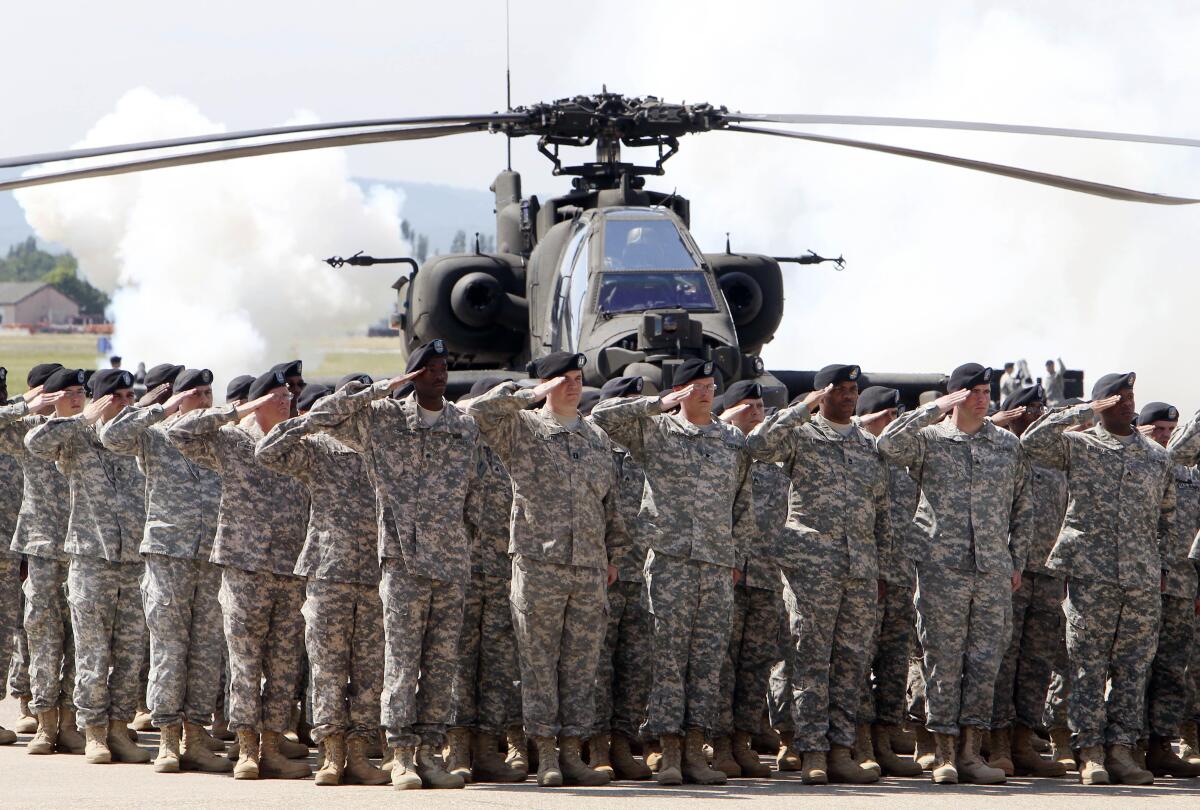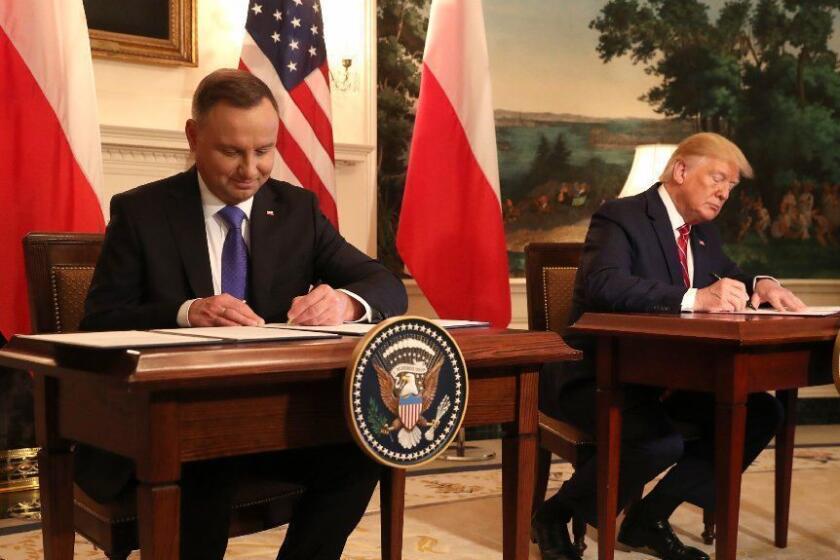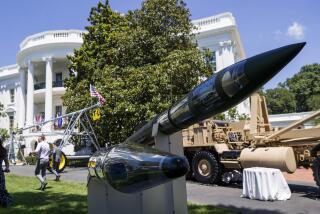U.S. to bring 6,400 troops home from Germany, move others elsewhere in Europe

- Share via
WASHINGTON — The Pentagon said Wednesday it would withdraw nearly 12,000 U.S. troops from Germany, carrying out an order from President Trump to punish Berlin for failing to meet NATO defense spending targets.
About 6,400 soldiers and other military personnel would be sent back to the U.S., while 5,600 personnel would be shifted to Belgium and Italy, a move Defense Secretary Mark Esper said was aimed at bolstering the Pentagon’s ability to deter Russia from threatening U.S. allies in Eastern Europe.
But Trump did not mention deterring Russia in his comments Wednesday morning about the plan: “We’re reducing the force because [Germany is] not paying their bills. It’s very simple. They’re delinquent.” He added that he might rethink the decision “if they start paying their bills.”
Initial small troop movements could happen within weeks and roughly 24,000 troops would remain in Germany, officials said. But most of the major moves face congressional opposition and could take years, if they happen at all.
A former top military official warned that the withdrawal would hamper U.S military strength in Europe, deepening the split between Washington and Germany and leaving fewer combat troops permanently stationed in Europe in case of war with Russia.
“A colossal mistake, a political decision not based on strategic analysis,” retired Lt. Gen. Ben Hodges, the former U.S. Army commander in Europe, said in a tweet. “Germany is a vital ally.”
The plan calls for moving a combat regiment to a still-undecided location in the United States and for relocating U.S. European Command headquarters from Stuttgart, Germany, to Mons, Belgium, near NATO headquarters. An F-16 squadron would be repositioned to Italy.
“This is going to accomplish what the president said,” Esper told reporters at a Pentagon press conference Wednesday. “These changes will achieve the corps principle of deterring Russia.”
The Pentagon announcement came only hours after Trump said he had not asked Russian President Vladimir Putin in a telephone call about intelligence reports that Russia was paying bounties to Taliban militants in Afghanistan for the killing of U.S. service members.
“That was a phone call to discuss other things, and frankly that’s an issue that many people said was fake news,” Trump told Axios in an interview Tuesday.
From the start of his presidency, Trump has sought warmer ties with Putin and targeted Germany, claiming it was not spending enough on defense, playing down its central geographic position in Europe, extensive military facilities and decades-old history of close cooperation with the Pentagon.
Two conservative German lawmakers have criticized the reported U.S. decision to withdraw more than a quarter of American troops stationed in Germany.
The withdrawal plan could be derailed if Trump is defeated for reelection in November, and even if it goes forward, the shift in forces will depend on Congress providing billions of dollars to pay for new housing and headquarters buildings.
Even Republicans in Congress appear dubious about the plan. Last month, Republicans on the House Armed Services Committee warned Trump against the redeployment from Germany.
“The threats posed by Russia have not lessened, and we believe that signs of a weakened U.S. commitment to NATO will encourage further Russian aggression and opportunism,” the letter signed by 22 Republicans said.
President Trump said Wednesday that he is shifting 1,000 U.S. troops from bases in Western Europe to Poland, but he stopped short of approving Warsaw’s request for a permanent U.S. military installation near Russia’s border.
The U.S. will continue to send combat units to Poland, the Baltics and other countries in Eastern Europe on temporary deployments to reassure allies in the Black Sea and Baltic regions close to Russia.
There about 47,000 U.S. troops and civilian Defense Department personnel now in Germany, along with tens of thousands of family members. Most are in a handful of larger Army and Air Force bases, including Ramstein Air Base, a key hub for the Pentagon in southwest Germany. Its top-notch combat hospital treated thousands of soldiers wounded in Iraq and Afghanistan in recent years.
Trump on Wednesday rejected the idea that the Pentagon benefits from its presence in Germany.
“They’re there to protect Europe. They’re there to protect Germany, right? And Germany is supposed to pay for it,” he said. “We don’t want to be the suckers any more.”
More to Read
Get the L.A. Times Politics newsletter
Deeply reported insights into legislation, politics and policy from Sacramento, Washington and beyond. In your inbox three times per week.
You may occasionally receive promotional content from the Los Angeles Times.












